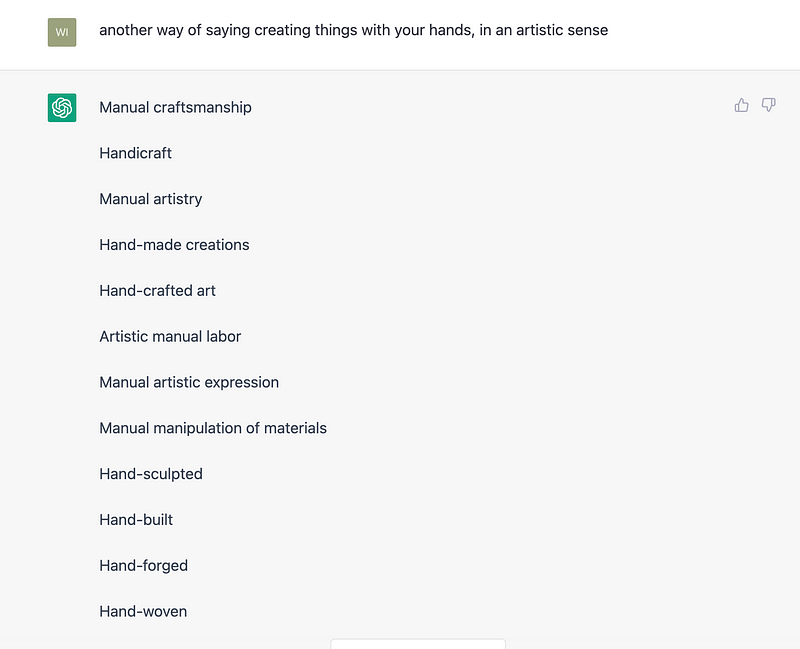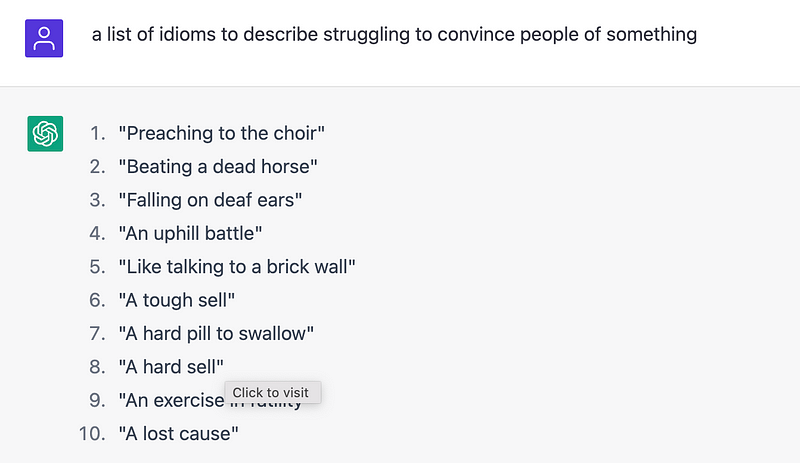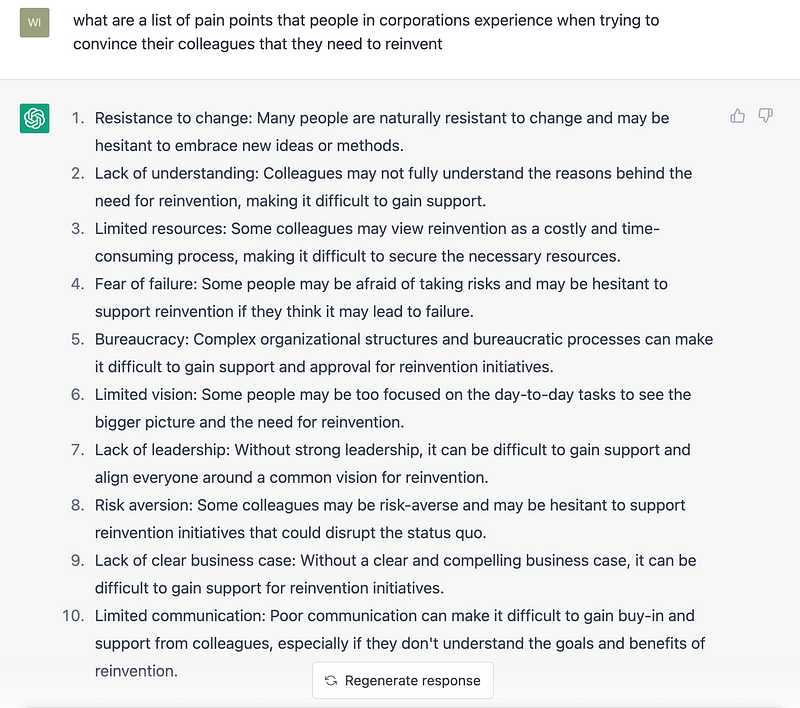Embracing ChatGPT: The Transformation of Copywriting
Written on
Chapter 1: A Shift in Perspective
It wasn’t too long ago that I published an article critiquing the AI-writing tool Jasper, arguing that if it merely remixes existing content, businesses using it would struggle to stand out. While I still uphold many of the points I made then, I must admit that ChatGPT has impressed me greatly since its debut, quickly becoming an essential part of my copywriting toolkit.
Initially, I was apprehensive. The capabilities of ChatGPT made me wonder if I was akin to a video rental store owner in 2008, dismissing Netflix as a minor player in the industry. The future of this technology remains uncertain, but I’ve come to view ChatGPT as an ally rather than an adversary.
I haven’t resorted to copy-pasting; I continue to produce all my original work. However, ChatGPT has enabled me to craft superior copy in a fraction of the time.
Section 1.1: Brainstorming with ChatGPT
Consider a scenario where a colleague seeks your input on their project. You provide a thorough list of ideas, and they take one, slightly modify it, and fail to acknowledge your contribution. Frustrating, right? Fortunately, ChatGPT isn’t programmed to feel competitive.
For freelancers like myself, who’ve been working from home long before the pandemic, obtaining quick feedback can be challenging. I estimate that a significant portion of my writing time is spent searching for the perfect phrasing. ChatGPT offers a fantastic solution to this dilemma.
Here's an example:

Given my understanding of the context, I usually have a better grasp than ChatGPT on which term is most appropriate. After reviewing the suggestions, the word I needed—"artisanal"—came to me.
It also aids in finding idioms:

While the suggestions were standard and didn’t quite fit, they prompted me to think of "a herculean effort," which was perfect for my context.
This collaborative brainstorming with ChatGPT conserves my time and mental energy, arguably my most precious resource as a writer, and aids in producing more engaging and relevant content quickly.
Section 1.2: Researching with ChatGPT
ChatGPT has had its share of notable errors in fact-checking, so I wouldn’t rely on it for serious research just yet. However, for basic inquiries and high-level overviews, it proves to be incredibly useful.
For instance:

The information provided could easily be sourced from a few blogs, but it’s significantly quicker and less mentally draining than sifting through search engine results. With the time saved, I can delve deeper and explore specific examples, conducting more thorough research on the most relevant topics.
This certainly suggests that the role of a copywriter is about to get easier, right?
Chapter 2: The Challenge of Excellence
In the video "Ep. 244: Cal Newport's Thoughts on ChatGPT," Cal Newport discusses the implications of AI in writing.
However, I firmly believe that if you’re not striving to produce better writing than what ChatGPT can generate, you may face replacement as the technology advances.
Remember, ChatGPT provides an average output based on its vast database of internet content. If you find yourself settling for "that will do," you might be getting too comfortable.
The full potential of this technology remains unknown, but one thing is clear: to stay relevant as writers, we must learn to leverage AI while also distinguishing ourselves from it.
Our roles as copywriters are evolving toward becoming "word curators" rather than just "writers" as this technology progresses. While our jobs may have become easier, complacency could lead to job loss.
For me, I prefer to view this as a friendly competition with a "frienemy." It enhances my writing skills, keeps things enjoyable, and reassures me that my role remains secure—at least for the time being.
In the video "To ChatGPT or Not: Embracing AI in Education with Dr. Mina Jo Blazy," Dr. Blazy discusses the impact of AI on educational practices.